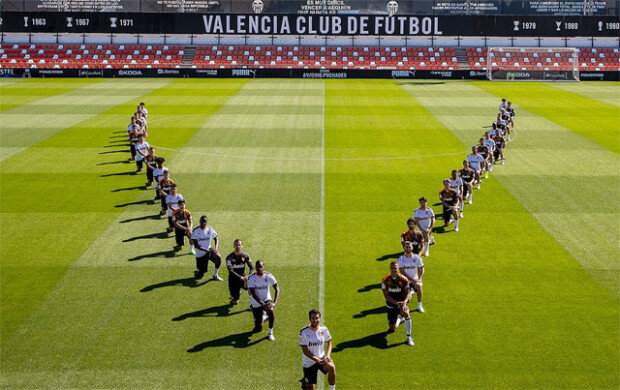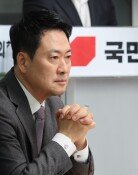Racism on the field
Racism on the field
Posted June. 12, 2020 07:48,
Updated June. 12, 2020 07:48


FIFA declared war against racism in 2006 by introducing a new rule that deducts three points from countries whose players or fans racially abuse other teams, which have been applied since the 2006 World Cup in Germany. The slogan, “Say no to racism,” was displayed across the stadium, and players made a pledge against racism. FIFA could no longer turn a blind eye to racism as racist words, which had been deeply entrenched in society, were frequently thrown around by fans who got so worked up during the game.
Pele, the king of football, confessed he was racially abused many times before he retired. Fans called him a monkey for his skin color. Unfortunately, the issue of racism still persists today. In 2014, Dani Alves had a banana thrown at him during a game when he was playing for FC Barcelona in La Liga. Alves responded by taking a bite and went back to play the game, which was well-received.
Ignoring racist behavior cannot be a solution. Not being treated equally as a human being leaves the victim feeling humiliated and traumatized. Mario Balotelli who plays for Brescia Calcio in Italy kicked a ball into the stands last year after hearing monkey noises, and it was not because the so-called bad boy is violent. Such racial abuse is hardly limited to black players. Son Heung-min, a popular South Korean footballer, has also faced racism. Lee Dong-gook and Lee Kang-in joined the ceremony for George Floyd who was killed by police probably because they understand that racism affects us all.
Nelson Mandela, who is a Nobel laureate and former president of South Africa, said sports can be used in a fight for human rights, recognizing the far reaches sports have. However, to eradicate racism, people’s mindsets must change. The United Nations Children’s Fund (UNICEF), which endorsed the anti-racism campaign of FIFA in the 2006 World Cup, said racism is a product of stereotypes based on gender, race and disability that one learns as they grow up. It calls racism unscientific and defines it as a result of cultural stereotypes. This is why it is important for children to see sports games where everyone is treated equally. Such experience can help eliminate racial abuse, and only then will sports be able to serve as a catalyst for cultural and emotional development going beyond physical activities.
Won-Hong Lee bluesky@donga.com




![“잠만 자면 입이 바싹바싹”…잠들기 전에 이것 체크해야 [알쓸톡]](https://dimg.donga.com/c/138/175/90/1/wps/NEWS/IMAGE/2026/02/23/133404749.3.jpg)


